
Related
Guests
- Saleemul HuqBangladeshi-born scientist with the climate change group at the International Institute for Environment and Development.
Saleemul Huq, a Bangladeshi-born scientist with International Institute for Environment and Development, discusses what he calls the key issue at the Warsaw climate summit: With talks on emissions cuts delayed until 2015, poor nations are seeking funding for the “loss and damage” that global warming has already caused. An impasse over the issue prompted a walkout by 133 developing nations and China at the talks earlier today. “The only real decision to be made in Warsaw is whether we have a new mechanism on 'loss and damage' or not,” Huq says. “We are now left with the inevitable consequence of failing to mitigate and failing to adapt [to climate change].”
Transcript
AMY GOODMAN: We end today’s broadcast with Saleemul Huq. He is a Bangladeshi-born climate expert with the International Institute for Environment and Development. The main issue here, Saleem, has become loss and damage, G-77 walking out just hours ago at 4:00 this morning, 133 countries. Please explain why.
SALEEMUL HUQ: Well, they just got fed up with the blockages that were being put in the negotiations on the issue of loss and damage, which is very dear to them. It’s one of the key elements of the Warsaw agreement. In fact, it’s really the only real decision to be made in Warsaw, is whether we have a new mechanism on loss and damage or not. Everything else is preparing for Paris in 2015.
AMY GOODMAN: And again, explain loss and damage, which is a U.N. term that most people don’t get.
SALEEMUL HUQ: Sure. Well, the reason we’re talking about it is that previously we’ve been trying to reduce the emissions of greenhouse gases to prevent climate change. We failed. We then tried to do adapt to climate change and provide assistance to developing countries to adapt and prepare. We haven’t been able to do enough of that. So we are now left with the inevitable consequence of failing to mitigate and failing to adapt, which is inevitable losses and damages or residual losses and damages.
Just to give you an illustration that people will understand, with Hurricane Haiyan in the Philippines just a few days ago, the Philippines is considered to be quite well adapted to hurricanes. They get over 20 a year. They get warnings, they go to the shelters; we don’t hear about it. This time they got the warning, they went to the shelters, and they died in the shelters, because it was a supercyclone, unprecedented, that the shelters that protected them for the last 20 cyclones didn’t protect them from this one. You couldn’t predict it.
So that’s the difference between adapting and loss and damage. There are limits to how much you can adapt. There will be—we will cross those limits. There will be losses and damages that are unavoidable. We need a place to talk about them. And that’s what the developing countries are asking for here: a mechanism, an institutional arrangement, that enables them to discuss what to do about these inevitable losses and damages.
AMY GOODMAN: So why did they have to walk out?
SALEEMUL HUQ: Well, they had texts. They were negotiating. And they were negotiating, I think, in fairly good faith with the Annex I countries, the European Union, the Americans, etc. They were making progress. And about 4:00 a.m. in the morning, the Australians put brackets around everything. And that—
AMY GOODMAN: That means?
SALEEMUL HUQ: That basically they disagreed with everything that had been agreed already between all the other parties. And they said they don’t agree. And that’s—that was like the last straw, after they had spent hours and hours of sincere negotiations with everybody. And the G-77 negotiators just felt this was not serious, and they left.
AMY GOODMAN: Finally, you come from Bangladesh. That’s where you were born. How is Bangladesh affected by climate change?
SALEEMUL HUQ: Well, Bangladesh, by many considerations, is probably one of the most vulnerable countries to climate change. We are a low-lying delta of a major river. We have floods. We have droughts in certain parts of the country. We get typhoons—we call them cyclones—every year. And we have a very low-lying coastal area which is gradually becoming salinized with sea-level rise. So we have almost all the impacts of climate change in one country with 150 million people living in less than 150,000 square kilometers.
AMY GOODMAN: Well, I want to thank you very much for being with us. Saleemul Huq is with the International Institute for Environment and Development.

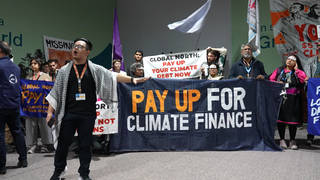
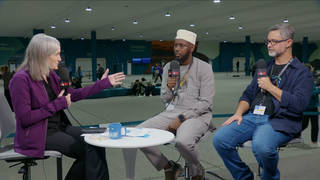
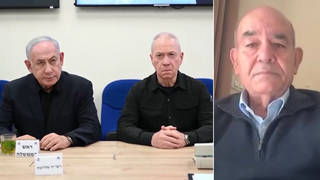
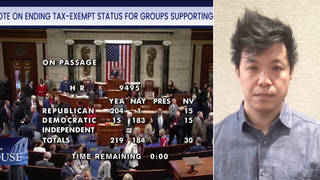






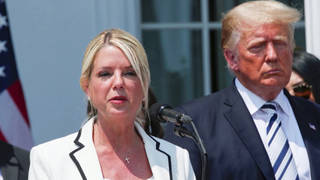
Media Options